- Home
- Diane Capri
Fatal Fall
Fatal Fall Read online
FATAL FALL
A JESS KIMBALL THRILLER
DIANE CAPRI
and
NIGEL BLACKWELL
Presented by:
AugustBooks
Get Diane Capri Books FOR FREE when you sign up for her FREE newsletter.
CLICK HERE: http://www.dianecapri.com
Praise for
New York Times and
USA Today Bestselling Author
Diane Capri
“Full of thrills and tension, but smart and human, too.
Kim Otto is a great, great character. I love her.”
Lee Child, #1 New York Times Bestselling Author of Jack Reacher Thrillers
“[A] welcome surprise…. [W]orks from the first page to ‘The End’.”
Larry King
“Swift pacing and ongoing suspense are always present… [L]ikable protagonist who uses her political connections for a good cause… Readers should eagerly anticipate the next [book].”
Top Pick, Romantic Times
“…offers tense legal drama with courtroom overtones, twisty plot, and loads of Florida atmosphere. Recommended.”
Library Journal
“[A] fast-paced legal thriller…energetic prose…an appealing heroine…clever and capable supporting cast…[that will] keep readers waiting for the next [book].”
Publishers Weekly
“Expertise shines on every page.”
Margaret Maron, Edgar, Anthony, Agatha, and Macavity Award-Winning MWA Past President
TABLE OF CONTENTS
Reviews
Dear Friends
Cast of Characters
FATAL FALL
Chapter 1
Chapter 2
Chapter 3
Chapter 4
Chapter 5
Chapter 6
Chapter 7
Chapter 8
Chapter 9
Chapter 10
Chapter 11
Chapter 12
Chapter 13
Chapter 14
Chapter 15
Chapter 16
Chapter 17
Chapter 18
Chapter 19
Chapter 20
Chapter 21
Chapter 22
Chapter 23
Chapter 24
Chapter 25
Chapter 26
Chapter 27
Chapter 28
Chapter 29
Chapter 30
Chapter 31
Chapter 32
Chapter 33
Chapter 34
Chapter 35
Chapter 36
Chapter 37
Chapter 38
Chapter 39
Chapter 40
Chapter 41
Chapter 42
Chapter 43
Chapter 44
Chapter 45
Chapter 46
Chapter 47
Chapter 48
Chapter 49
Chapter 50
Chapter 51
Chapter 52
Chapter 53
Chapter 54
Chapter 55
Chapter 56
Chapter 57
Chapter 58
Chapter 59
Chapter 60
Chapter 61
Chapter 62
Chapter 63
Chapter 64
Chapter 65
Chapter 66
Chapter 67
Chapter 68
Chapter 69
Chapter 70
Chapter 71
Chapter 72
Chapter 73
Chapter 74
Chapter 75
About the Authors
Also by the Authors
Copyright
Dear Friends,
Thank you for buying this copy of Fatal Fall. I’m very excited to share this new Jess Kimball Thriller with you. Readers say Jess Kimball Thrillers are filled with “fast-paced, believable characters, taut action, and surprises all the way to the finish.” In all of these ways, Fatal Fall will not disappoint!
It’s been fun to write this book with my friend Nigel Blackwell, too. The most frequent question I receive from Jess Kimball fans is “when will you write a new Jess Kimball book?” With Nigel’s help, I’m pleased to say the answer is very soon!
I’m always working on a new book. Please sign up for my mailing list to receive advance notice of new releases and lots of other exclusive stuff for members only. You can do that here: http://dianecapri.com/get-involved/get-my-newsletter/
While you’re waiting for a new Jess Kimball Thriller, please give my other books a try. I believe you’ll enjoy them. You can find a complete list of all of my books here: http://dianecapri.com/books/
And please let me know what you think. I love hearing from you. You can write to me anytime and I hope you will. I’d love to get to know you better, and you can always reach me here: http://dianecapri.com/get-involved/message/
Meanwhile, thanks so much for reading. Readers like you are the reason I feel it’s an honor and a privilege to write for you.
Caffeinate & Carry On!
CAST OF CHARACTERS
Jessica Kimball
Brentwood Stephenson
Joshua Nelson
Elisha Harvey
Charlene Mackie
Alistaire Meisner
Margot Meisner
Henry Morris
Karl Blackstake
Crystal Mackie
John Whiting
Barbara Whiting
FATAL FALL
“Where there is mystery,
it is generally suspected there must also be evil.”
—Lord Byron
CHAPTER ONE
Randolph, Washington
Monday, September 26
5:00 a.m. Pacific Time
It wasn’t easy.
Moving a body never was.
The new grave was a mile from the old one, deep in a thick wooded area. A better location. Well hidden. He’d chosen the first location under pressure, but it had served well for more than a decade. This second grave should last forever.
He touched the sores on his hands where blisters had formed and burst. Fall’s rain and humidity had weighted the soil and compacted the ground. The digging had taken much longer than expected, but it was finished. The hole was ready.
Now he needed the body.
Carrying his shovel, Karl Blackstake set off for the old grave. The undergrowth in the woods was heavy. He changed directions often, looking for an easier route. Branches clawed at him as he pushed through. He held the shovel in front of his face to fend off the worst of the thorns.
He trudged through deep darkness. He shined a weak light on the ground ahead of his footfalls. Red. The least observable color, in case someone was watching. He grunted. Red light was the least illuminating, too. He backtracked several times, eventually exiting the woods a half mile farther than he’d intended.
Out in the open, he had to sacrifice the weak red light, but from here, he knew his route.
Thirty minutes later he reached the old grave. He’d dug it fourteen years ago at the base of a substantial nine-foot gray steel fence post. The border fence had been under construction back then. It ran for more than a mile, intended to keep trespassers off the property. Beyond the fence in the opposite direction was a ribbon of trees maybe a hundred feet thick, and beyond the trees lay a minor road.
The fence was a massive structure with thick steel cables running horizontally between the steel posts. Three rows of barbed wire ran along the top. It was an intimidating sight, and it was intended to be so.
It had been constructed years earlier when vandals had knocked down a low fieldstone wall that had been intended to serve the same purpose. The
wall had failed to keep trespassers away. The new fence would not.
A giant tractor had dug holes for the steel fence posts. The holes were deep into the soil. He’d put the tractor’s efforts to his own use back then. The tractor had dug the old grave and done a decent job of the task. The body could have stayed there until it decomposed. It was a perfect plan at the time.
But some do-gooder lawyer up in Seattle had won a court order allowing local complainers to move the fence and build a new pathway. Something about an old covenant that he had no time for. All he knew was that the body couldn’t be here when the workmen arrived to move the perfectly good fence at the end of the week.
At the gravesite, he drove his shovel into the ground. He removed the grassy layer from the top of the grave and set the grass to one side. He’d use the sod to cover the hole after he filled it in with dirt.
The wet soil clumped around the shovel’s blade. His boots slipped in the mud. Sweat ran down into his eyes. He cussed at the stinging rivulets and wiped them with the back of his filthy hand. He probably looked like a coal miner or something. A long, hot shower was going to feel great when he finished the job.
The ground was tight at the base of the fence post, and trees were close on the other side. He had trouble getting good leverage on the shovel. He had to dig from an awkward position to avoid damaging the structure. It meant he had to use his weaker, left arm, making the digging slower and harder. The sores on his hands developed new blisters that bled when they burst. Blood mixed with sweat and rain made the shovel handle slippery. He grunted as he pushed the shovel into the ground, again and again.
Two feet down, Blackstake leaned his shovel against the fence and straightened his back. He could feel the individual vertebrae popping back into their proper location. Click, click click. He rotated his hips, stretching out his cramped muscles.
He’d been a lot younger when he had buried the girl. His grave digging days should have been over long before now. He could have hired younger men with stronger muscles to do the job. Trustworthy men who could be counted on to keep their mouths shut. But his boss didn’t trust anyone else to handle the biggest secrets. Blackstake felt a wry grin steal across his mouth. This was very definitely a skeleton in the senator’s closet.
Blackstake looked up the hill in front of him. Sunrise was maybe an hour away. The moon was a thin sliver, low on the horizon, its light cold and weak, but sufficient for his purposes. At the top of the rise was the mansion, three stories and sprawling. His employer, Senator Meisner, his wife, and a small cadre of kitchen staff, housekeepers, and day-to-day security lived on the premises. Soon, the staff would be rising. Time was short.
He cracked his knuckles. Blackstake knew the mansion’s routines. He was a member of the security team. He’d been lucky. He came out of the navy right as Meisner started his run for senator. They were a perfect fit—Meisner needed someone with his special blend of skill and resourcefulness, and he needed a job.
The mansion’s white walls were pale in the weak moonlight. By day the place was visible for miles. Visible to the media, too. Though the senator hadn’t announced his intention to mount a bid for the presidential race in two years’ time, he was driving hard to raise funds and a few of the more savvy media outlets had prematurely connected the dots. He lived under a spotlight now that required more discretion than usual. Neither he nor Meisner was happy about the increased scrutiny.
Around the mansion was the gravel driveway, though to call it a driveway was a misnomer. It was fifty feet across and known to the security team as the killing zone because running on its rough surface was impossible.
In a couple of weeks, covered pathways would run from the house to the lawns. The start of the preparations for Meisner’s first serious fundraiser. Marquees would be positioned at the end of those pathways, giant tent structures that would cocoon the occupants in luxury, insulating them from the Northwest’s rainy weather while providing the vaguest impression of being outdoors. A fancy catering company from Seattle would stock the marquees with food, flowers, and all the other baubles that impressed the rich.
Guests would land their helicopters on the pad at the rear of the property, and be whisked to the reception. He grinned. The whisking would be done by beautiful and expensively dressed women, handpicked by the senator for their conviviality.
The senator would then ply the one trade he was superb at. Talking. He would direct his focus to each person in turn, deftly praising their accomplishments, complimenting their spouses, and hinting at how he really wanted to support their pet project. The rich were far more petty than ordinary people. They had no idea as to what they wanted to change in their lives, so they just picked something. It didn’t appear to matter what that was, as long as they had something. Meisner had said that to him, and he believed it because once the conversation reached a conclusion, they would stare each other in the eye, give a firm handshake, and Meisner’s political coffers would be a hundred thousand richer.
There had been lean times, but Meisner had solved his cash flow problems in the same way aristocracy had solved such problems for centuries. He had married into money.
Blackstake picked up his shovel. The brief respite had eased his aches. He attacked the ground with renewed vigor. As he progressed deeper into the earth, the soil ran back into the hole. He broadened the hole, extending it into a short trench, aligned with where he remembered he had hidden the body.
Lights came on up at the mansion. Blackstake sweated. He was running late. The sun wasn’t up, but its light was reflecting off the sky. The world around him was gaining that milky black and white effect of the earliest moments of dawn. If he could just get the body out of the ground and hidden in a wheelbarrow before it really got light, he’d look like any ordinary workman.
Another minute’s digging and a shiny surface became visible. The plastic bag in which he had wrapped the girl. He worked his way around the edges, clearing the mud until he could lever the shovel under the body. He had torn the bag and punctured it with his knife, to allow nature to reclaim what was hers.
He brought a plastic wheelbarrow alongside the hole. He slid a plastic sheet under the body and lifted it out. His muscles strained at the weight, his back protested, but in a few moments the body was secure in the barrow and covered by another plastic sheet. Out of sight.
Moving the soil back into the hole was easier than digging it out. He tamped down the layers and set the turf last. Sweat poured down his face, but he wasn’t finished. He had a mile to cover before sunrise.
The sun was on the verge of breaking over the horizon. He secured his shovel to the wheelbarrow.
A buzz sounded. Not loud, but close.
He ducked down. The sound came from the woods. He moved his head left and right. The noise was diffuse, bouncing off the trees and hiding its source. He pulled out his gun. He’d already fitted the silencer, though the sound of gunfire in the stillness would carry a long way.
He shed his jacket and folded it double. He pulled himself up the wires that held the fence in place. The tension made them almost rigid. At the top, he laid his jacket on the rows of barbed wire. Thick layers of fabric rendered the knife-sharp barbs ineffective. He rolled over the top, and slid down the other side, outside the fence.
He stood still. The buzz continued, but there was no chatter or laughter. No shuffling of feet or whispered conversation. Probably one person, then. One, he could deal with. A team presented bigger problems.
The sound was faint. The buzzing waxed and waned, partly from the distance and partly from the shielding effect of the trees. He moved toward the road. It was one of the most open areas of the thin ribbon of woods. Even so, the tree canopy filtered out almost all light.
The buzz stuttered. He froze, rotating his head, fruitlessly searching for direction. The faint buzz grew louder. The pitch rose and fell. He strained to see in the blackness but saw nothing.
He heard movement, footsteps on leaves, but couldn’t
judge the exact location. If someone was in the woods he had to find them. He pushed onto the edge of the forest, where the trees met the minor road that ran along that side of the estate.
He kept his fingers tight around the gun’s grip, his finger against the trigger with the barest pressure. He searched the road in either direction. There was no car and no sign of life. He moved to another tree, kneeling down and resting his weight against its trunk for protection.
The wet tarmac glistened in the dim light. He had a good position, elevated with a clear view of almost a quarter of a mile in either direction. All he needed was a target.

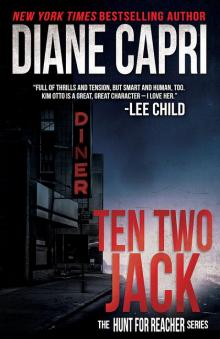 Ten Two Jack
Ten Two Jack Room with a Clue: A Park Hotel Mystery (The Park Hotel Mysteries Book 3)
Room with a Clue: A Park Hotel Mystery (The Park Hotel Mysteries Book 3)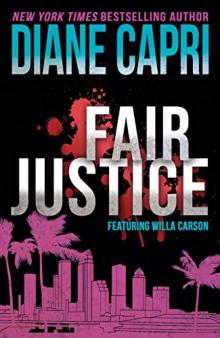 Fair Justice
Fair Justice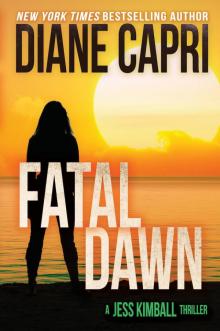 Fatal Dawn
Fatal Dawn Reservation with Death
Reservation with Death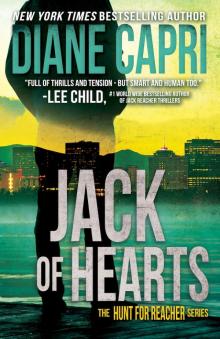 Jack of Hearts
Jack of Hearts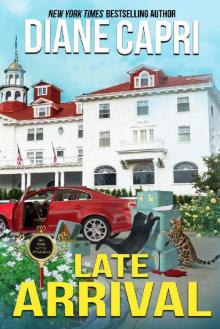 Late Arrival: A Park Hotel Mystery (The Park Hotel Mysteries Book 4)
Late Arrival: A Park Hotel Mystery (The Park Hotel Mysteries Book 4)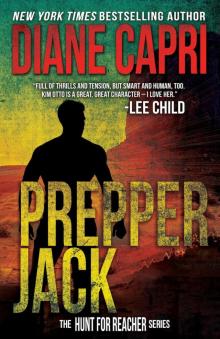 Prepper Jack
Prepper Jack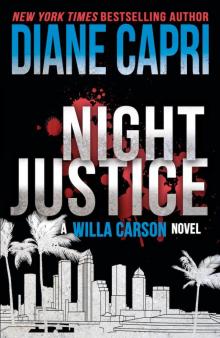 Night Justice
Night Justice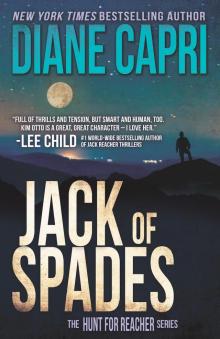 Jack of Spades
Jack of Spades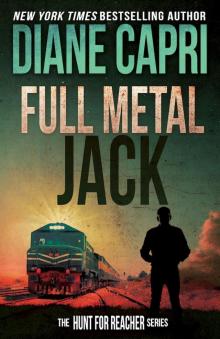 Full Metal Jack
Full Metal Jack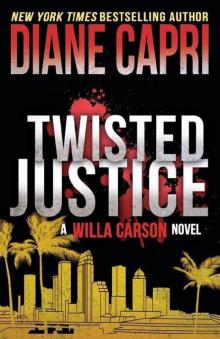 Twisted Justice
Twisted Justice Early Check Out
Early Check Out Reservation with Death: A Park Hotel Mystery (The Park Hotel Mysteries Book 1)
Reservation with Death: A Park Hotel Mystery (The Park Hotel Mysteries Book 1)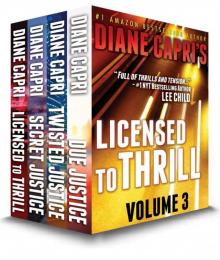 Licensed to Thrill: Volume 3
Licensed to Thrill: Volume 3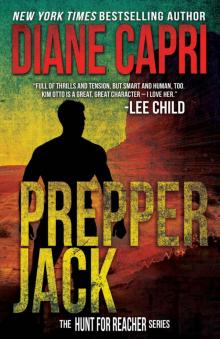 Prepper Jack: Hunting Lee Child's Jack Reacher (The Hunt For Jack Reacher Series Book 12)
Prepper Jack: Hunting Lee Child's Jack Reacher (The Hunt For Jack Reacher Series Book 12) False Truth 4 (Jordan Fox Mysteries)
False Truth 4 (Jordan Fox Mysteries)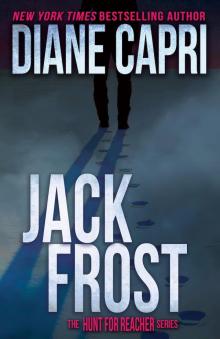 Jack Frost
Jack Frost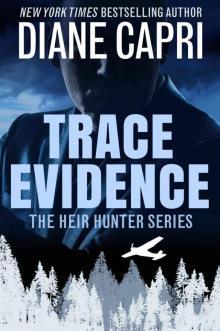 Trace Evidence (The Heir Hunter Book 2)
Trace Evidence (The Heir Hunter Book 2)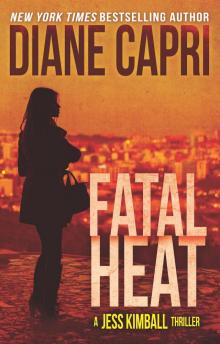 Fatal Heat
Fatal Heat Black Jack
Black Jack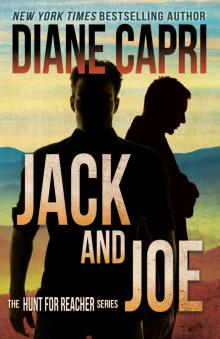 Jack and Joe
Jack and Joe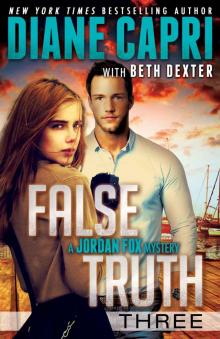 False Truth 3 (Jordan Fox Mysteries)
False Truth 3 (Jordan Fox Mysteries)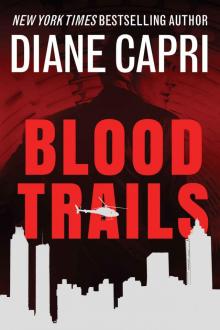 Blood Trails
Blood Trails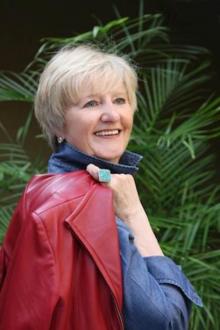 Don't Know Jack
Don't Know Jack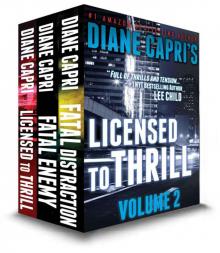 Licensed to Thrill: Volume 2
Licensed to Thrill: Volume 2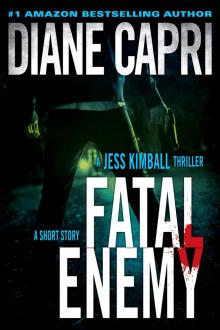 Fatal Enemy
Fatal Enemy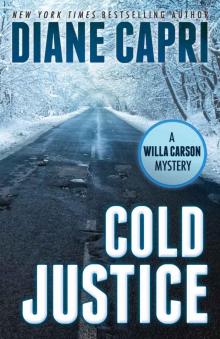 Cold Justice: A Judge Willa Carson Mystery (The Hunt for Justice)
Cold Justice: A Judge Willa Carson Mystery (The Hunt for Justice)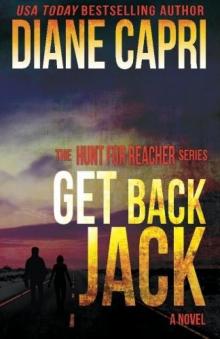 Get Back Jack
Get Back Jack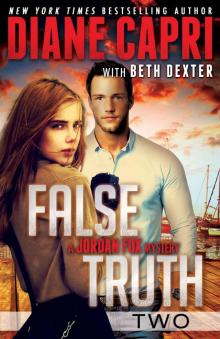 False Truth 2 (Jordan Fox Mysteries Series)
False Truth 2 (Jordan Fox Mysteries Series)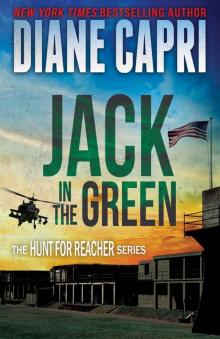 Jack in the Green
Jack in the Green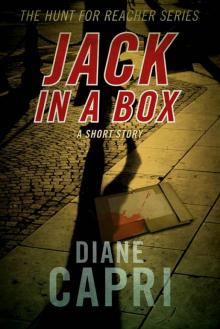 Jack In A Box
Jack In A Box![[Jess Kimball 01.0 - 02.0] Fatal Starts Read online](http://i1.bookreadfree.com/i1/04/01/jess_kimball_01_0_-_02_0_fatal_starts_preview.jpg) [Jess Kimball 01.0 - 02.0] Fatal Starts
[Jess Kimball 01.0 - 02.0] Fatal Starts False Truth 8-10: 3 Action-Packed Romantic Detective Mystery Thrillers To Keep You Up All Night (Jordan Fox Mysteries Series)
False Truth 8-10: 3 Action-Packed Romantic Detective Mystery Thrillers To Keep You Up All Night (Jordan Fox Mysteries Series) False Truth 1 (Jordan Fox Mysteries)
False Truth 1 (Jordan Fox Mysteries)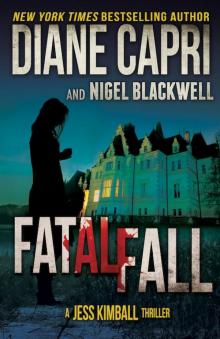 Fatal Fall
Fatal Fall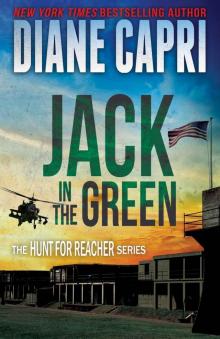 Jack in the Green (The Hunt for Jack Reacher Series)
Jack in the Green (The Hunt for Jack Reacher Series)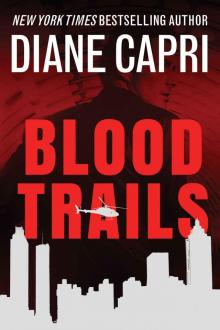 Blood Trails (The Heir Hunter Book 1)
Blood Trails (The Heir Hunter Book 1)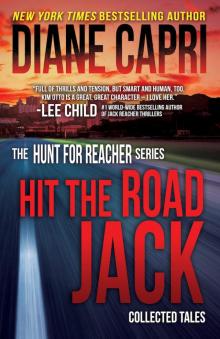 Hit the Road Jack
Hit the Road Jack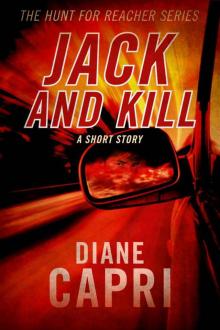 Jack and Kill (Hunt For Reacher (Short Story #2))
Jack and Kill (Hunt For Reacher (Short Story #2))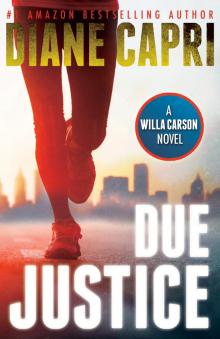 Due Justice
Due Justice False Truth 10 (Jordan Fox Mysteries Series)
False Truth 10 (Jordan Fox Mysteries Series)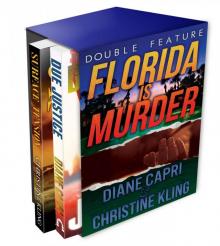 Florida Is Murder (Due Justice and Surface Tension Mystery Double Feature) (Florida Mystery Double Feature)
Florida Is Murder (Due Justice and Surface Tension Mystery Double Feature) (Florida Mystery Double Feature) False Truth 7 (Jordan Fox Mysteries)
False Truth 7 (Jordan Fox Mysteries)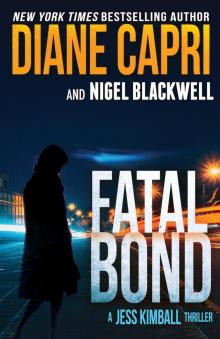 Fatal Bond
Fatal Bond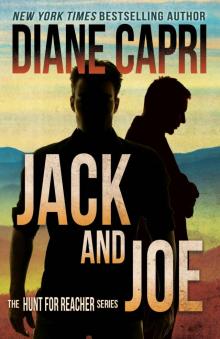 Jack and Joe: Hunt for Jack Reacher Series (The Hunt for Jack Reacher Series Book 6)
Jack and Joe: Hunt for Jack Reacher Series (The Hunt for Jack Reacher Series Book 6)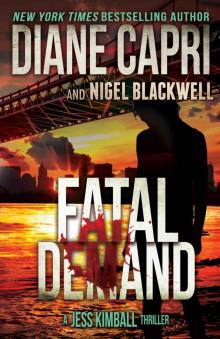 Fatal Demand: A Jess Kimball Thriller
Fatal Demand: A Jess Kimball Thriller![[Jordan Fox 01.0 - 04.0] False Truth Read online](http://i1.bookreadfree.com/i2/04/08/jordan_fox_01_0_-_04_0_false_truth_preview.jpg) [Jordan Fox 01.0 - 04.0] False Truth
[Jordan Fox 01.0 - 04.0] False Truth False Truth 6 (Jordan Fox Mysteries)
False Truth 6 (Jordan Fox Mysteries)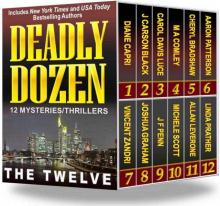 Deadly Dozen: 12 Mysteries/Thrillers
Deadly Dozen: 12 Mysteries/Thrillers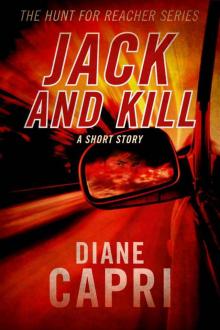 Jack and Kill
Jack and Kill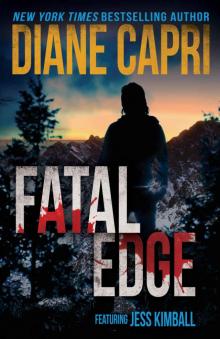 Fatal Edge: A Jess Kimball Thriller (The Jess Kimball Thrillers Series Book 6)
Fatal Edge: A Jess Kimball Thriller (The Jess Kimball Thrillers Series Book 6)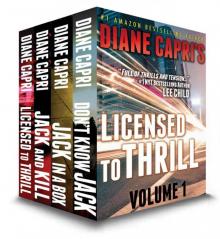 Licensed to Thrill: Volume 1
Licensed to Thrill: Volume 1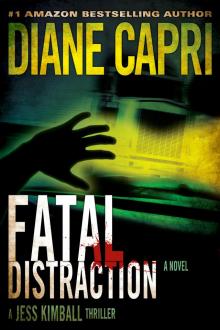 Fatal Distraction
Fatal Distraction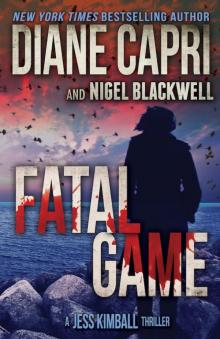 Fatal Game
Fatal Game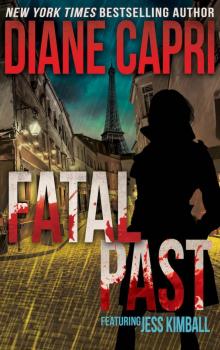 Fatal Past: A Jess Kimball Thriller
Fatal Past: A Jess Kimball Thriller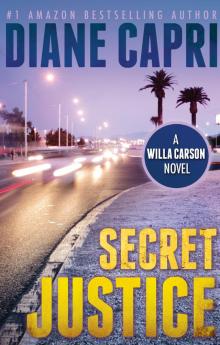 Secret Justice
Secret Justice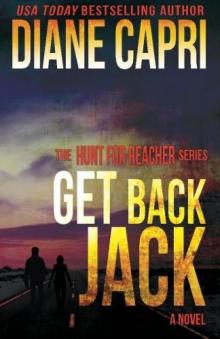 Get Back Jack (The Hunt for Jack Reacher 4)
Get Back Jack (The Hunt for Jack Reacher 4)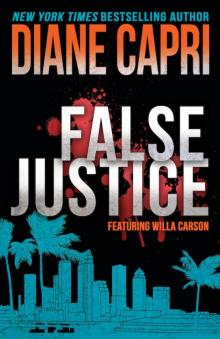 False Justice
False Justice